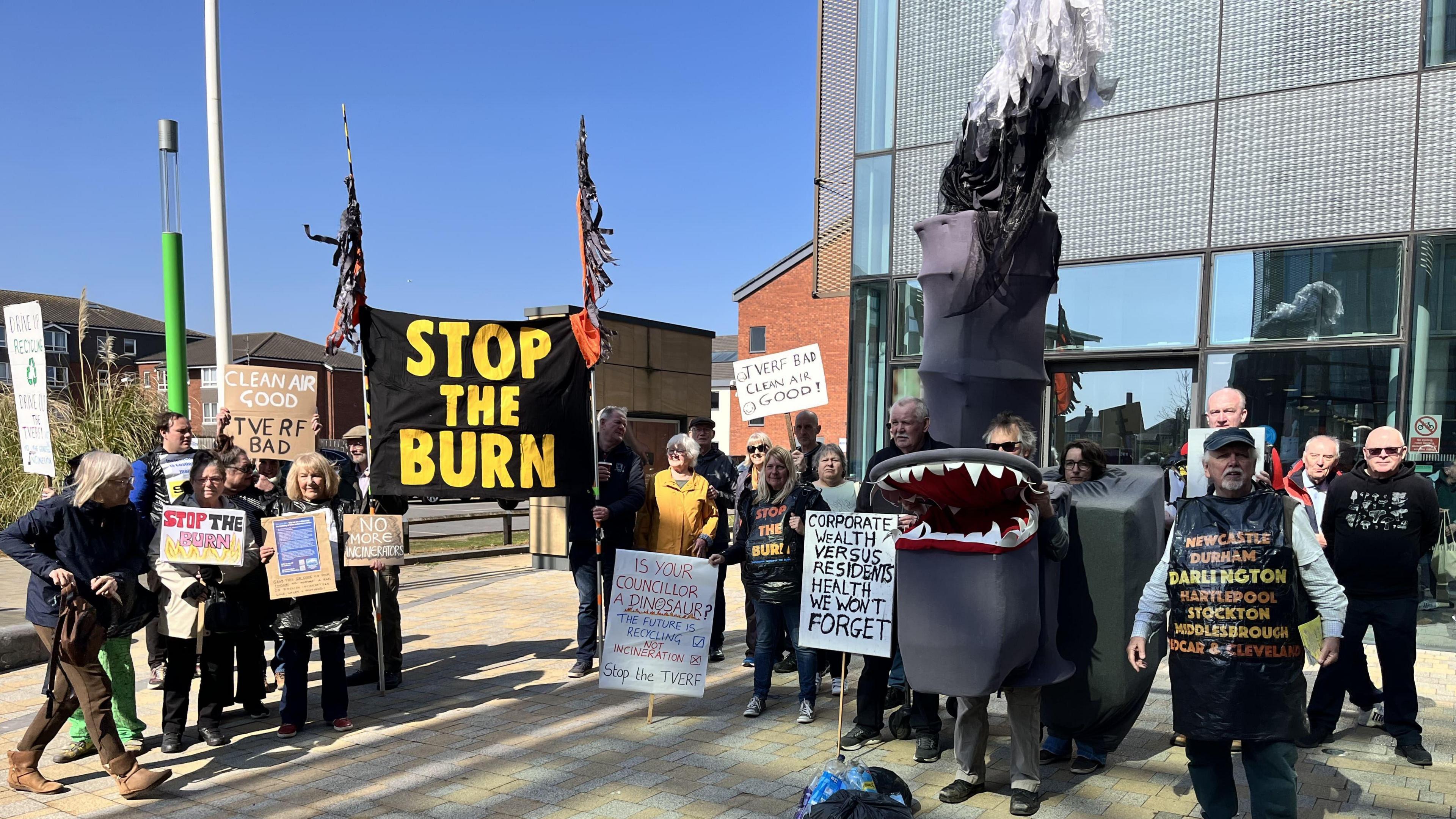Council votes to move forward with new incinerator

Tees Valley Energy Recovery Facility will take waste from seven councils in north-east England
- Published
A council's Labour executive has voted in favour of moving forward with plans for a new regional incinerator.
The Tees Valley Energy Recovery Facility is set to burn 450,000 tonnes of household waste from seven council areas each year, to create electricity for National Grid.
Middlesbrough Council unanimously approved the continuation of its involvement with the incinerator, which is due to be built on land at Teesworks, near Grangetown, Redcar.
Councillors in Newcastle recently voted in favour of withdrawing from the facility and Durham County Council's leader said his Reform UK administration would be looking to do the same as there was "no appetite" for it.
However, despite the vote in Newcastle, the Local Democracy Reporting Service said it was unlikely the ruling Labour cabinet there would agree to pull out of a contract that could run for up to 40 years and has been valued at more than £2bn.
'Huge' costs
Geoff Field, Middlesbrough Council's director of environment and community services, explained his local authority was moving towards financial close with the preferred bidder, hopefully by the end of March.
He said the waste facility demonstrated an improvement in terms of environmental credentials, which would be "much more" sustainable than those currently undertaken.
Once signed off, building work can get under way, with an expected completion date of 2029/30.
Other councils have seen non-binding votes to remove themselves from the scheme.
Labour's Ian Blades asked if there would be "huge" costs should Middlesbrough decide not to go ahead with the scheme.
Mr Field said when the council entered into an agreement with other local authorities, if any organisation pulled out, it would be liable for procurement costs if the project failed, highlighting potential additional third party claims.
He added there would be ongoing and "higher" costs that would potentially be faced by Middlesbrough if the agreement was not entered into, as the council would have to go back to the market on its own.
Following an amendment that would see councillor Peter Gavigan, executive member for environment and sustainability, gain greater oversight, the executive unanimously approved the recommendations.
Follow BBC Tees on X,, external Facebook, external, Nextdoor and Instagram, external.
Get in touch
Do you have a story suggestion for BBC Tees?
- Published10 September

- Published22 August

- Published17 July
